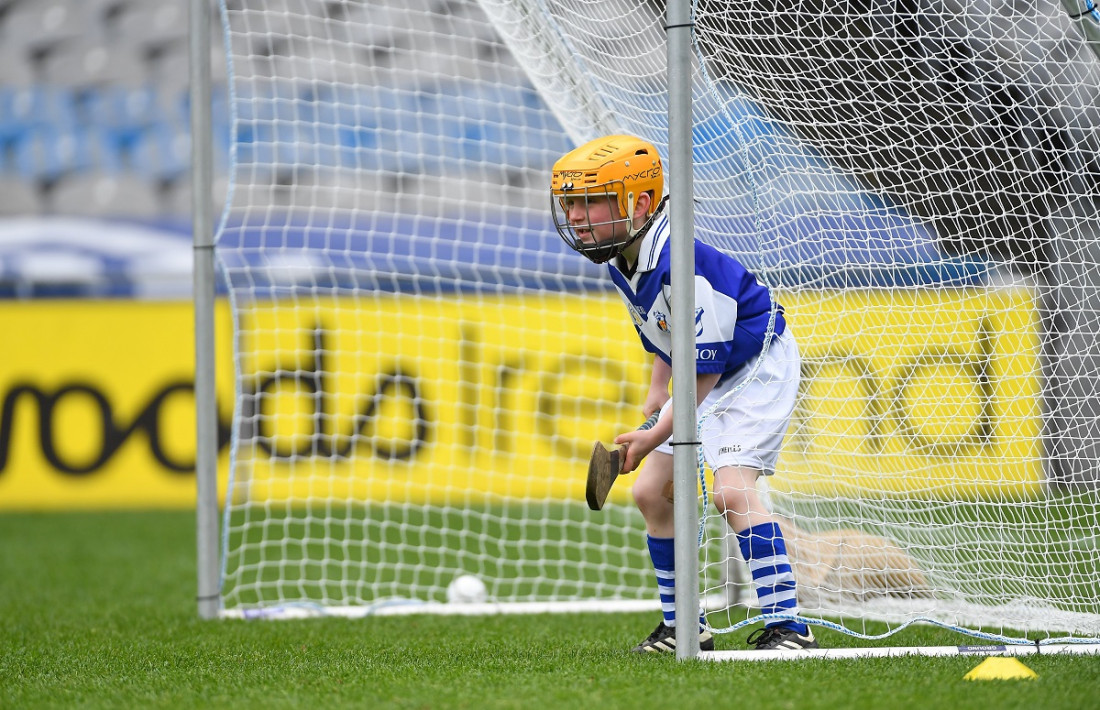By Patrick Morrison
WHENEVER I was younger, Sherry’s Field in the heart of Armagh City was our playground. A very large field, it included five full tennis courts, a soccer pitch, a playground as well as some fringe areas for building tree huts and the like. No matter what the weather was like, most of our time was spent playing football in some shape or form.
From playing Headers & Volleys, to small-sided matches, Wembley Knockout, Crosses or just simply taking shots at one another, we burnt hours of daylight emulating our favourite players and cult heroes. Special mention must go to Christopher Mallon’s black leather football with pink patches, it was an amazing piece of craftmanship.
It was here where my first taste of goalkeeping came from. Everyone would have their turn in goal no matter what the game was we were playing. There were no grumbles, arguments, or complaints as everyone took their turn and whether it was for an approximate time or a set number of goals, we were all obliged to be the custodian when our turn arrived.
This started me thinking, is there a right age to become a goalkeeper? Usually when a team is deciding upon which player is going to play in goal, certain stereotypes come to the fore. The tallest, largest, heaviest, last to be picked, most unpopular, perceived worst outfield player or the craziest kid is placed into goals. Using this method to choose your goalkeeper is not the most effective way for selection.
What also is evident in most youth teams is the emphasis on scoring and what heightens this further is how this side of the game is celebrated and glorified whereas conceding scores is frowned upon and vilified – thus, alienating the goalkeeper and making the position extremely unattractive for anyone who may be considering taking on the challenge.
There are several more effective ways of deciding upon goalkeepers for your team. The first of which is obvious and is simply asking your team if anyone has any ideas of being the team goalkeeper. You may find, even at an early age, some players wish to become goalkeepers and nothing else. Even so, it is important that these players still get to experience playing outfield to increase their understanding of the game as well as ensuring they gain a balanced taste for every position.
The second option is to have rotational selection for the position both in training and for games. This allows every player on your team to experience playing in goal equally as well as allowing all players to play outfield increasing the respect that each player has for all positions of play. When a team has an understanding for all positions it creates a more cohesive team that becomes more understanding and patient when mistakes/errors occur.
Another advantage of the rotational selection is, like when I was younger, everyone knows this is the situation and there are no disgruntled players as they know it is not a permanent fixture with everyone taking a turn. This ensures that every player gives their all whenever they are in goal, which allows the coach to see who could be developed into a future keeper as they get older.
The third option is a more novel approach where you pick two evenly matched teams, without assigning positions to any player and throw the ball in and let the players just play.
As the game develops you will notice that the children will naturally gravitate towards a certain area of the pitch and complete noticeable roles continuously. For example, some players will stay up close to the opposing team’s goal and rarely retreat to assist with defending, highlighting these players as possible forwards.
Other players will tirelessly run from end to end with or without the ball while others will hang back to defend their own goal classifying them as possible midfielders and defenders respectively.
The last possibility that you will pick up on in this option is that one, maybe even two, players will always be the very last defender more so than the other players. They will also make the last-ditch tackle or even throw their body at the goal bound shot in much the same way as a goalkeeper would. It is these players that can be earmarked as potential future goalkeepers.
Whatever method you decide to use to unearth goalkeepers, it is vital for coaches to understand that all young players must have the opportunity to try all positions even if they wish to play in goal themselves and that for a goalkeeper the age at which they decide to become a goalkeeper is irrelevant.
What is more important is the training and coaching the goalkeeper receives once they have decided to become a goalkeeper on a full-time basis. Both their training and their coaching must be specific to the position, including any gym or conditioning work that is expected of them.
Arguments can and have been made about the goalkeeper being the most important position on the pitch, but what is certainly apparent is that a goalkeeper is the one true specialist position on the field of play.
It is because of these specialised skills and the ‘last line of defence’ nature of the position that all goalkeepers must have or develop a strong mental attitude to enable them to deal with the psychological pressures of being a goalkeeper.
Have a goalkeeping related question and/or would like some goalkeeping advice? Then don’t hesitate to reach out on any of the platforms below.
Email: pmgoalkeeping@hotmail.com
Facebook: @MSoG11 | Twitter: @MorSchGk | Instagram: @pmx.28
Receive quality journalism wherever you are, on any device. Keep up to date from the comfort of your own home with a digital subscription.
Any time | Any place | Anywhere












